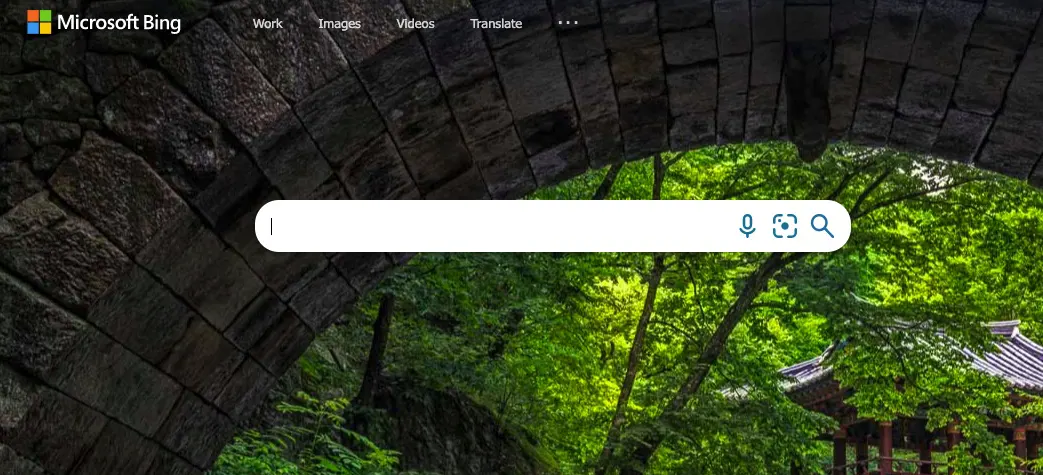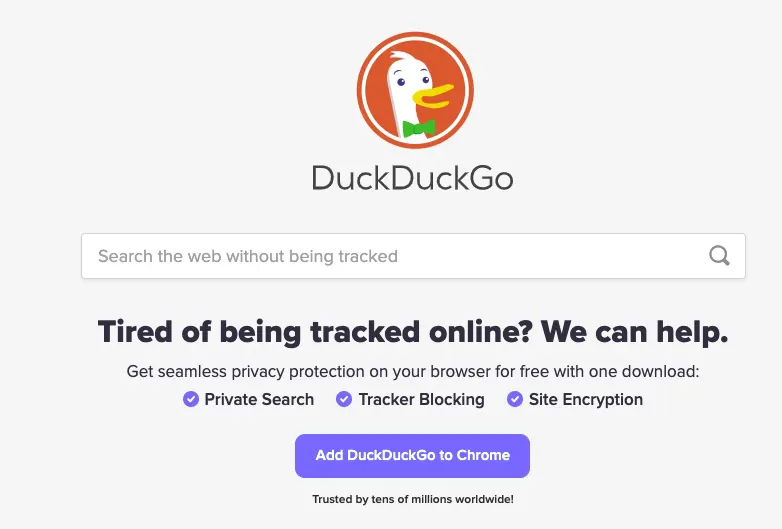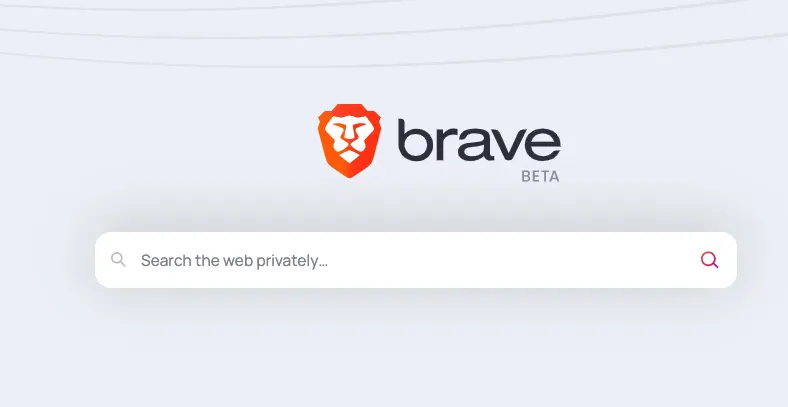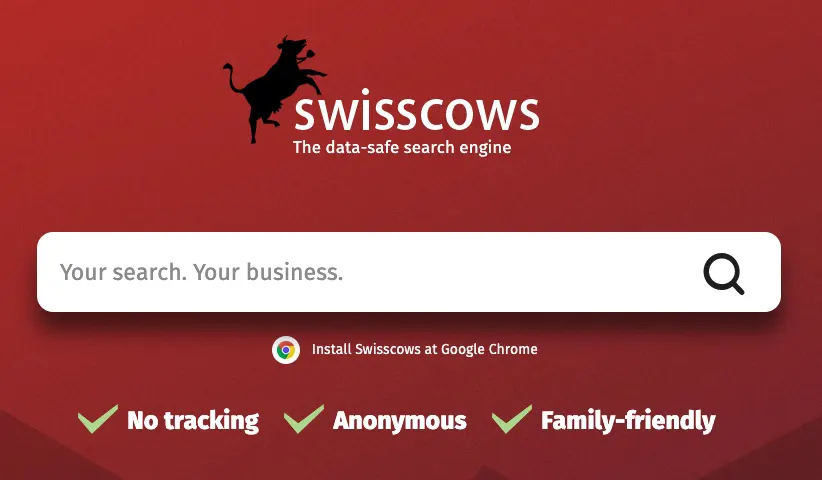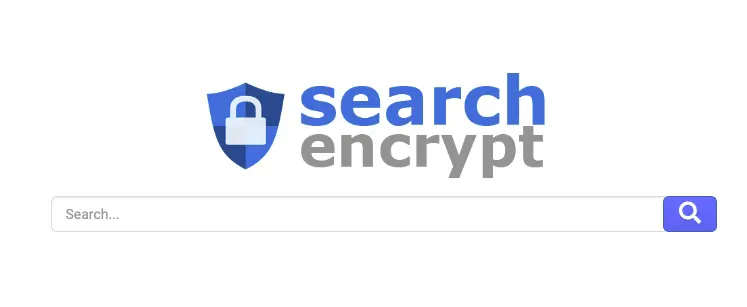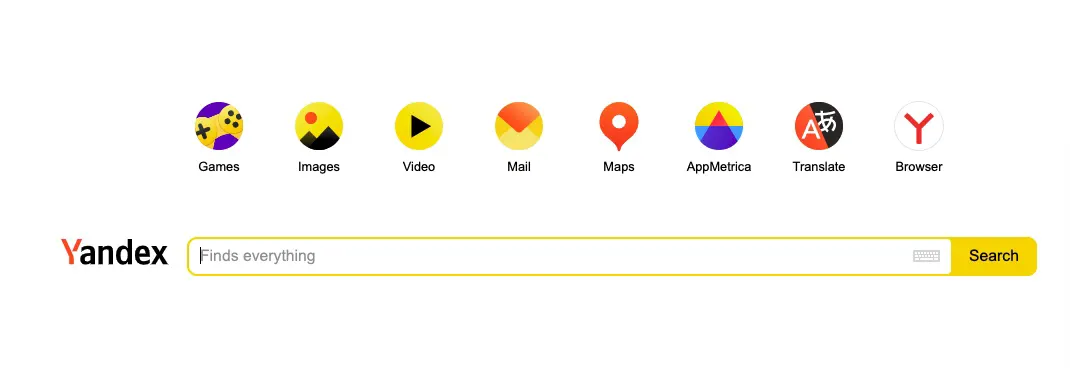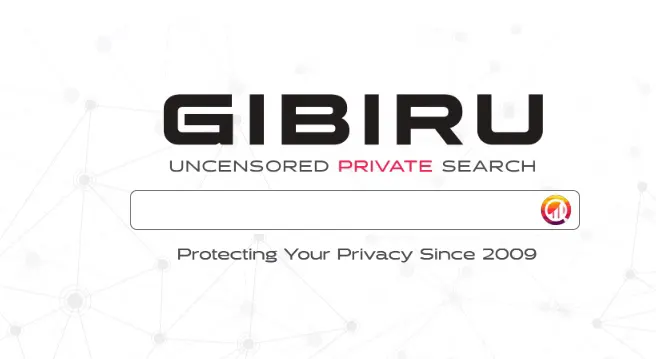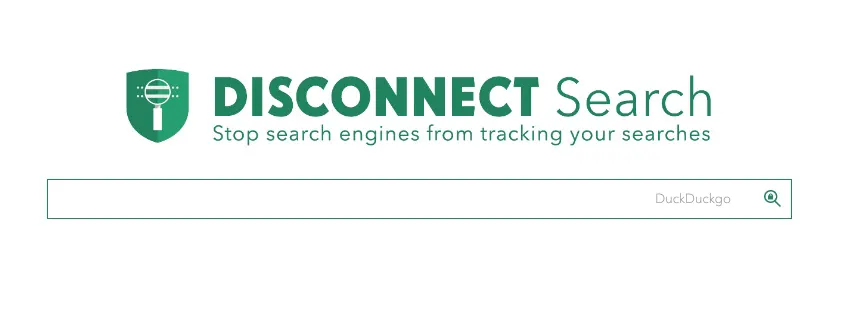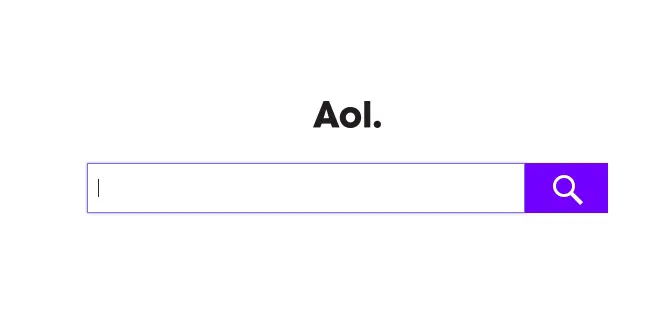When Google officially started in September 1998, it encountered around 10,000 search queries per day. Today, 20 years later, Google works with 65,000 search queries per second. And this is good for Google because at least its search results are always top class.
So, we wanted to determine if there are good alternatives out there, with Google taken as our reference. However, many users frowned when asked about alternatives to Google: “Why search for alternatives when you have the best search engine already?” they asked.
Google’s good search technology shows only one side of the coin. In the last 20 years, not only has the number of search queries increased, but Google has also undergone changes and is snooping into the privacy of its users.
The Google data privacy declaration, riddled with clauses, is enough to learn that Google not only saves search queries and IP addresses but also personalizes the data, uses it for advertisement purposes, and shares it with third parties. Fortunately, there are certain counter-models available that respect your privacy.
It’s safe to say that Google is the best and the most widely used search engine. Even though Google amounts to more than 90% of the entire search volume of the world, there are a few drawbacks to using Google as well. Google collects loads of data to deliver personalized ads tailored to your choices.
To track your behavior and online activity, Google collects data from all apps, such as YouTube, Gmail, location history, and more. Furthermore, tracking doesn’t end there; Google Maps tracks you everywhere, how long you stay there, which routes you take to get there, and much more.
Consequently, this is bound to make some people uncomfortable that another entity tracks all their activities. To combat this issue, this article will explore other Google alternatives.
Best Google Alternatives – Our Top Pick👌👌
1. Microsoft Bing – Google alternatives To Turn information into action
Microsoft’s Bing is one of the best Google alternatives and its main competitor, accounting for over 33% of all the searches conducted in the United States. The search page of Bing looks remarkably similar to Google’s, with blue-colored links and green URLs.
However, Bing offers reward points for using it to search and buy stuff on the internet, which you can later redeem as gift cards or other non-profit donations.
Microsoft Bing is, however, much less popular than Google from a worldwide perspective, as it only accounts for 6.7% of the global search market compared to Google, which reined in over 86.6%. Moreover, this 6.7% search market shouldn’t be taken lightly as it represents millions of users worldwide.
Google has indexed hundreds of billions of web pages, while Bing only has around 8-14 billion pages in its directory. Google features a mobile-first index, whereas Bing uses a single index optimized for mobile and desktops to ensure that your site loads quickly and allows the users to reach the site they want.
Bing has more visual appeal than Google, which does a great job of displaying all the relevant content in the spotlight.
2. Yahoo search
Yahoo is a search provider instead of a full-fledged search engine like Google or Bing. Yahoo Search uses Bing to get its results from the web.
Yahoo simply provides the interface, while Bing does the searching. Yahoo’s homepage is more decorated than Google and Bing, with a wide variety of products and features.
When searching for images on Yahoo, it returns many unrelated and irrelevant results that do not match the search query. Even though Bing powers Yahoo search, their SERP results are very different.
3. DuckDuckGo – Google alternatives To take control of your personal information online
The DuckDuckGo search engine built its reputation because it does not collect any data on the users, so all their data is kept private and not shared with any third parties.
It features a very clean user interface that is easy on the eyes, and the search results are derived from Yahoo and Yandex.
Another unique feature of the DuckDuckGo search engine is “Bangs.” Bangs are shortcuts to access frequently visited sites like Wikipedia, Amazon, eBay, Reddit, Twitter, etc.
You can use shortcuts like “!a, !w, !facebook” to directly search for queries on those websites without having to open the websites first.
DuckDuckGo’s privacy features are unparalleled as it blocks cookies and ads aimed at extracting data from you by default; in addition, you can clear the search history, cache, and other data with the tap of a button.
DuckDuckGo also introduced email protection with the browser that blocks hidden trackers within your mail.
4. Brave Search – Google Alternatives Private Search Engine
Brave search is the newest search engine in this list of the best Google Alternatives that took the world by storm when it was first released. It was released in June 2021 and quickly became famous because it was similar to Google but didn’t track your searches or preferences.
Brave is open-source software, allowing anyone to look into it to check for malicious code, making it very transparent. Since its inception in 2021, the Brave search engine has garnered over 300 million monthly searches.
Unlike Yahoo, Brave does not use Bing or Google to gather its data; instead, it is an independent search engine that uses its algorithms to extract data. However, it allows you to search from Bing or Google.
The brave search engine uses the Web Discovery project, which you can opt-in to allow Brave to collect data anonymously from a person to build a better search index to ensure only relevant data is shown for the requisite query. Even though Brave uses its index for search results, it does need Bing and Google for image results.
Like the Google search engine, Brave will also show you some ads you can disable by opting for a premium subscription that costs $3 a month.
Several customizations within the search engine can help you narrow down the list of relevant results for the search query. Since Brave is still in Beta, it supports Google fallback mixing to refine its search results by searching the query separately on Google and then combining the results with its own to provide more relevant suggestions.
Local search results are essential when looking for restaurants or stores in your area. However, it requires you to provide access to your location.
Brave has a smart way of circumventing this problem as it determines your location from your IP address but does not store that information and displays the stores and restaurants within a general area. You can also enter your location manually if you don’t want to reveal it to the search engine.
5. Ecosia – Google Search alternatives that plants trees
Ecosia is the only search engine that plants trees, and it has been in function since 2009, so it’s not a new player in this area. Ecosia uses 100% of its profits to plant trees, and every time you search for a query through Ecosia, it removes about 0.5 KG of carbon dioxide from the atmosphere.
Tech giants like Google and Amazon route their profits through low-tax states to prevent paying many taxes. However, Ecosia has and always will pay its taxes in full; this money goes to funding schools and helps with foreign aid.
Unlike Google, Ecosia does not keep track of your clicking behavior, how long you stay on sites, or how frequently you visit them. There is an option to turn personalized suggestions on/off very easily.
It is also one of the most privacy-centric search engines; Ecosia does not create a profile based on your searches and online behavior; instead, it encrypts and secures all searches to prevent them from being leaked to third-party eavesdroppers.
6. Qwant – Google alternatives that doesn’t know anything about you
Qwant is amongst the best Google alternatives as a search engine; it is based out of France and offers superior privacy features.
Like the DuckDuckGo search engine, it does not gather your data or search history or track your online behavior. It also has a “Qwik search shortcuts” feature that is very similar to Bangs by DuckDuckGo.
Qwant’s interface is clean and highlights all the relevant topics on its search pages. Its searches are divided into three categories: web, news, and social.
The division of the search results into these three distinct categories gives many relevant results to the users that are displayed in a very pleasing manner.
However, this search engine has certain drawbacks as it will not give you personalized results since it doesn’t track your online activity. It is also not available in a lot of countries like India.
7. Swisscows – Google alternatives data-safe search engine
Swisscows is a search engine based in Switzerland with some of the most strict privacy laws in the world. It does not collect personal information like your IP address, search queries, history, or online behavior.
This search engine is also very popular among parents who want to prevent their kids from accessing inappropriate content. The built-in filters for violent and inappropriate content cannot be disabled and will stay on indefinitely.
Swisscows displays ads based on your search queries, not your location, which further protects your privacy. It also displays search suggestions arranged in grids akin to Google’s autocomplete searches.
Swisscows offers several other services like Teleguard, a communication app similar to Whatsapp but way more secure.
8. Search Encrypt
Search Encrypt is a search engine that values privacy the most; it does not collect private information about the user like Google does to show results based on previously recorded searches.
The search results are gleaned from its array of search partners without revealing your private information and basing the search results on the search query alone. Search Encrypt constantly deletes all your search data every 15 minutes you use the search engine.
So you can ensure that your search activity is not revealed to anyone or any third-party companies.
It utilizes end-to-end encryption to protect your data using AES-256 encryption and SSL protection. After the results for your search query are displayed, it deletes your encryption key, making your searches inaccessible to everyone else, even if someone else has access to your system.
9. Start Page – Google alternatives To Prevent Online Profiling
Start Page is also the world’s most private search engine. It claims to be able to display search results akin to Google while tracking and storing 0% of the user’s data; it also doesn’t collect personal information like IP addresses and removes all the trackers.
There’s also an inbuilt privacy feature that uses a proxy connection to connect to the internet for an added layer of protection.
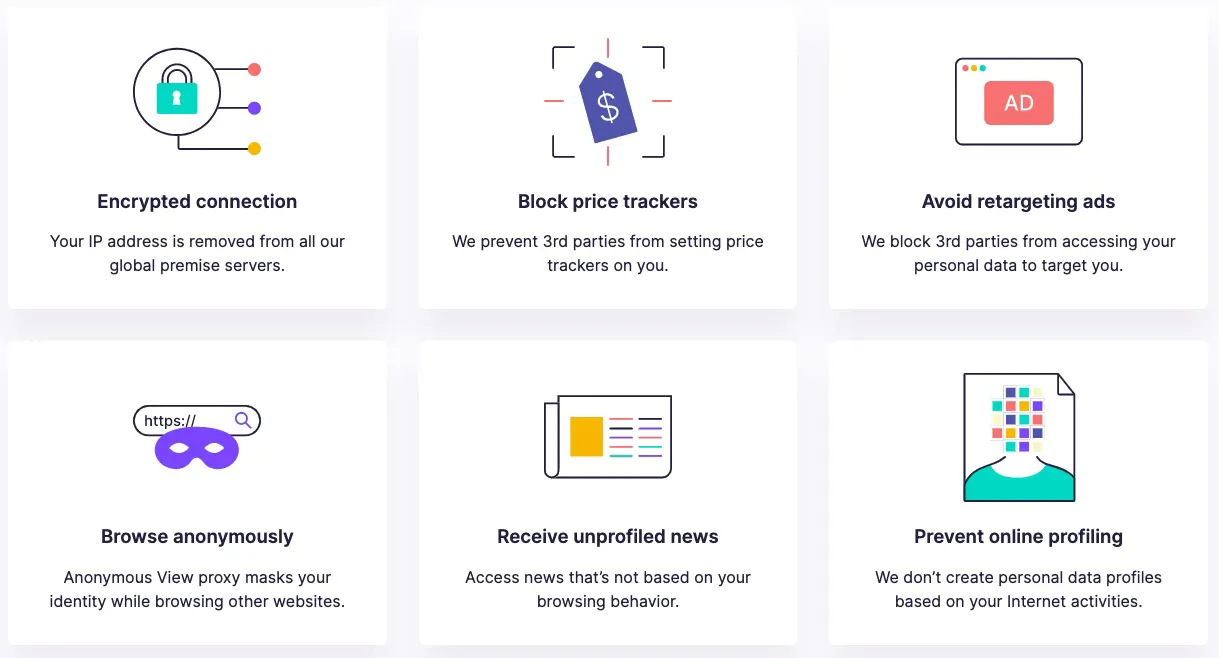
Furthermore, the parent company of StartPage is based in the Netherlands, so it is subject to European Union & Dutch privacy laws. It is entirely safe from PRISM, a global surveillance program introduced by the United States in 2007.
StartPage went on to receive the European Privacy Seal, a compliance seal a company gets through several technical and design audits, indicating that a company is in conjunction with European privacy and data security laws.
Since StartPage does not collect user data, it earns money through contextual advertising based on your search queries.
StartPage pays money to Google to allow it to use its search results without collecting any private data. The search results are not personalized, which means that the results are the same for users that search for the same query.
10. SearX
SearX is a metasearch engine to make the web decentralized and more secure. Like most search engines on this list, SearX does not gather personal data.
It derives its search results from several popular search engines like Google, Yahoo, Bing, and DuckDuckGo. It also blocks all the trackers, preventing the search engines from user-profile-based search results.
While opening search results from the SearX search engine, a direct non-tracking link is provided, unlike Google, which uses a separate tracked URL to collect data on your behavior on the site.
Furthermore, all of the links seen on the SearX results are cached or proxied, which means you’re visiting the website without actually visiting it because your online identity is masked.
The live version of the websites can be accessed and viewed using a SearX-based proxy which hides your online identity and prevents trackers from recording your information.
SearX gathers search results from over 82 search engines, including all of the top ones, and you can choose which search engines you want to get results from within the preference window.
11. Yandex – Google alternatives in Russia
Yandex is the most popular search engine in Russia and one of our favorite Google Alternatives, accounting for over 51% of all the searches conducted in Russia.
It is also the fifth-largest search engine in the world, and it has a lot of connected apps like web browsers, analytics, translator, mail, and cloud storage services. Since it offers such a wide array of services, this makes it a direct competitor to Google in certain aspects.
Furthermore, Yandex provides local search results from over 1400 cities worldwide and utilizes a parallel searching algorithm that uses a web index and specialized information sources like news, articles, and blog to display search results cohesively on a single page.
There are three parts to the Yandex search engine; Agent, Index, and Search Engine.
An agent is known as a search robot while it analyzes documents and links; when a new link is found, it places that link into a list of addresses. There are three search robots, spiders, crawlers, and indexers.
Spiders download and store data from users’ browsers, while Crawlers look for new undiscovered links on the web by analyzing previously discovered ones.
Indexers scan the new web pages found by spiders and crawlers to add a link to them in their directory.
Furthermore, the Index collects all the websites found by search robots. All the search queries go through this index to find the relevant results. When the user enters a query in the search bar, the query is processed and then transferred to the server which has the least amount of load, and this is achieved by clustering the Yandex servers.
Moving on, an app called Metapoisk analyzes the request by determining the user’s location and language preference and then deciding which category the search query belongs to in real time.
After all that is done, the information is stored for some time in the cache memory, and if a match is found, the results are displayed.
If no matches can be found, Yandex will use its basic search program to display the results if the search query is rare.
12. Gibiru
Gibiru is a private search engine that collects minimal data from the user and also handles censorship. None of your search queries are stored on the Gibiru servers, as they are deleted seconds after you search for them.
You can download its AnonymoX plugin from the firefox plugin store to direct all your traffic through a proxy, adding another layer of protection and privacy.
Since search queries of the users collect no data, making user profiles for targeted ad recommendations is impossible, and Gibiru doesn’t sell your private information to any third-party companies.
Gibiru has a unique Uncensored feature that shows all the webpages that wouldn’t be shown by normal search engines like Google, Yahoo, and Bing. The anti-censorship feature allows you to access all the current news and not just the ones approved by Google.
All your data is protected by HTTPS 256-bit encryption and the ads displayed are not based on user profiles but only on the specific search queries entered by the user.
Gibiru is a very safe and secure browser; however, it does collect some data, such as monitoring server logs to aid with API integration. This is not a deal-breaker but is something you should keep in mind.
13. Disconnect
Disconnect has a webpage as well as a browser extension. Unlike other search engines, Disconnect only reroutes your search queries to make them anonymous and uses DuckDuckGo, Bing, Yahoo, or Blekko to display search results.
This app was initially designed to prevent third-party trackers and provide users with a safe and secure online experience.
However, it was banned by Google and removed from PlayStore two weeks after its initial launch in 2014 for violating the terms of service. However, the ban was lifted after this move garnered a lot of backlash against Google, as Disconnect is considered a privacy-friendly application.
Moreover, both the mobile and PC application are streamlined and visually depict how websites track you. It also shows privacy icons that depict the privacy policy of the website visually so you can decide if you want to visit that URL or not.
Naver is a South Korean search engine launched in 1999. It was the first search engine to use a comprehensive search algorithm that combined search results from various categories and displayed them on a single web page. Naver introduced this feature five years before Google came out with the Universal Search feature.
Naver accounts for over 74% of the total search volume in South Korea, with over 42 million enrolled users. Naver has also been called “The Google of South Korea.”
Naver was also the first to introduce a Q&A platform known as Knowledge iN in 2002, three years before Yahoo launched the “Yahoo! Answers” service.
Naver’s homepage is strikingly similar to Yahoo’s, with colorful banners and a load of the information displayed on the main page; while searching for queries, you can switch between organic results, images, maps, videos, and news from the tabs below the search bar.
Comparing Google and Naver, it can be seen that Naver offers almost all the functions that Google does, including paid ads, organic results, products, etc. However, Naver displays a lot more local results compared to Google.
15. AOL
AOL is one of the oldest search engines and has over eight million monthly users currently. It offers basic web searching functions like images and videos with filters for the region, time, and date.
Even without using contextual or intent-based search results, AOL still manages to deliver relevant results.
However, there are several areas where AOL isn’t as good as the rest of the search engines on this list as it still cannot display localized search results, for example, restaurants near you or the nearest hospital.
16. Seznam
Seznam is one of the most famous search engines in the Czech Republic. It was released in 1996 as the first online yellow page and search engine in the Czech Republic.
Seznam is the second most popular search engine in the Czech Republic, accounting for over 42% of the search volume compared to Google, which accounts for 54% of the total search volume of the Czech Republic.
📗Frequently Asked Questions
Does Google own DuckDuckGo?
No, DuckDuckGo is not old by Google. And is a privately owned Internet privacy company, notes to empower its users to effortlessly take control of all their personal information online, without any tradeoffs.
Is there any search engine better than Google?
Google is undeniably the biggest player as far as search engines are concerned. However, if you want to try various other browsers, you can have a look at some decent options.
If privacy is your major concern, search engines like StartPage, DuckDuckGo, Swisscows, etc. are Reliable options. And, if you want to use a search engine for doing business in a specific location, you can try Baidu and Yandex.
What is the most unbiased search engine?
DuckDuckGo is considered the most unbiased and highly secure search engine and promotes itself as a search engine that does not track personal information, including searches and results.
What search engine is used in Russia?
Yandex is one of the most popular and mostly used in Russia and the fifth most popular worldwide.
What is the downside of DuckDuckGo?
DuckDuckGo doesn’t offer a lot of important services as compared to Google and other search engines.
It is way beyond Google as far as market share is concerned and doesn’t even allow you to sign a lot of accounts and services. So, you cannot rely only on DuckDuckGo for your search results and other syncing services.
Do Japanese people use Google?
Yes, Google is the most dominant search engine in Japan, even in 2022. However, the overall market share is very different compared to other major countries, with more than 76 percent of the entire search engine market.
Why do people use Yandex?
Yandex Is a very popular portal and offers free e-mail, music, live traffic maps, videos, photos, and much more. Many features of Yandex are very similar to those offered by Google and have been very popular in various countries.
Which search engine is used in China?
Baidu is one of the major and most popular search engines in China and undoubtedly the country’s answer to Google.
In China, Baidu controls 75% of the entire search engine market and even brings in a lot of users from other countries, including the United States and Japan.
Which countries do not use Google?
No country does not use Google at all. However, Google is not dominant in all countries like China, Russia, North Korea, and South Korea and does not cover even half of the market share.
Which country uses Google most?
With 26.9% of traffic share, The United States is on top as far as using Google is concerned. India is ranked second and accounts for 4.5 percent of traffic.
What is the Korean search engine?
Naver is the number one and mostly used search engine in South Korea and completely overtakes Google in that particular region. The leading search engine in the country has a great reputation for innovation.
What is Korea’s version of Google?
Naver is Considered the Google of South Korea, with more than 25 million people preferring it as the start page of their default browser. The mobile application of Naver has more than 28 million daily users.
(Q). How to perform a Bang search on the DuckDuckGo search engine?
The Bang feature on DuckDuckGo allows you to access and search websites like Wikipedia, YouTube, GitHub, Amazon, etc., without having actually to open the website and then enter the search query.
Instead, with DuckDuckGo, you can simply use the “!” mark to see a list of available websites and directly search on them. Read the instructions provided below to see how it is done.
- Log in to your laptop or PC and go to the DuckDuckGo website.
- Now type “!” on the search bar, and a list of websites accessible by the shortcut will be displayed.
- Suppose you want to search for something on Wikipedia, type in “!w” give space in between and then enter a topic, for example, “ !w quantum physics.”
- When this query is entered the DuckDuckGo search engine will redirect you to the quantum physics wiki page, directly, eliminating the need for you to go to the website and then enter the search query.
(Q) How to check if websites are down on DuckDuckGO?
Did you know DuckDuckGo has a nifty feature that tells you whether a site is running or not by typing in “ is website name down?” Read the instructions provided below to see how it is done.
- Log in to your laptop or PC and go to the DuckDuckGo website.
- Suppose you want to check if Facebook is down; all you have to do is head to the search bar and type in “is facebook down.”
- The DuckDuckGo search engine will check whether the site is running or not by sending requests and receiving responses.
(Q). Can you preview images on Bing?
Yes, Bing allows you to preview images by hovering the cursor over a specific picture. The picture will zoom in, allowing you to get a better look without opening the link.
Conclusion
We hope this article provided you with some options to choose as Google alternatives. Going for alt search engines can be a good way to prevent Google from tracking your online behavior and collecting private information about you to deliver customized ads and suggestions, tailormade to entice you.

























